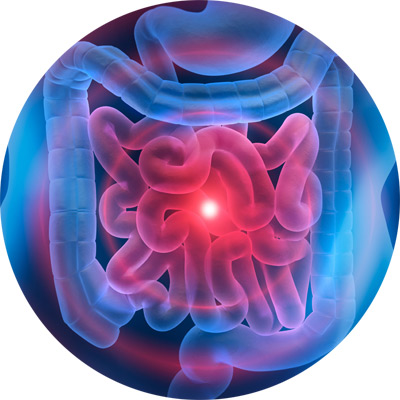Inflammatory bowel diseases
IBD

IBD is a multifactorial disease involving environmental and genetic factors. People of any age can get IBD, but it’s usually diagnosed between the age of 15 and 40.
Ulcerative colitis and Crohn’s disease are long-term conditions that involve inflammation of the gut.
Ulcerative colitis only affects the colon (large intestine). Crohn’s disease can affect any part of the digestive system, from the mouth to the bottom (anus).
People with Inflammatory Bowel Disease (IBD) experience episodes of diarrhoea, abdominal cramps and pain, bleeding from the rectum, weight loss, fever and fatigue. Both illnesses may be accompanied by various extraintestinal manifestations in e.g., the eyes and joints or on the skin. The intensity of the symptoms may vary a lot over time. Patients may experience long periods of remission and/or recurrent flare-ups (What is IBD? | efcca.org)
8 million people are estimated to be living with IBD worldwide and more than 300 000 in France.
Causes of the Interstitial Cystitis
The exact causes of Interstitial Cystitis are unknown, but researchers believe many factors are at play.
Factors that may contribute to the development of the disease include:
- Bladder trauma (as in pelvic surgery)
- Excessive bladder distension
- Pelvic floor muscledysfunction
- Auto-immune
- Chronic bacterial infection
- Primary neurogenic inflammation (hypersensitivity or inflammation of the pelvic nerves)
- Spinal cord injury
- Radiotherapies

